铁观音茶对高血压的功效及适用性分析
来源:全国名中医 时间:2023-07-15
高血压是一种常见的慢性疾病,它对患者的身体健康和生活质量造成了重大影响。在中医学中,铁观音茶被认为具有一定的降血压作用,对于高血压患者的辅助治疗可能具有一定的益处。然而,要了解它的适用范围和注意事项,我们需要对铁观音茶的特性和中医理论有更深入的了解。
首先,铁观音茶是中国传统的名茶之一,产于福建武夷山一带。其主要成分包括茶多酚、咖啡因、氨基酸等。其中茶多酚是铁观音茶的重要活性成分,具有抗氧化、抗菌、抗炎等多种生理活性,而茶多酚的咖啡碱成分则具有兴奋神经系统的作用。
据中医理论指出,铁观音茶性温味苦,归肺、胃经,有清热化痰、理气消食的功效。高血压主要是指动脉血压持续增高,与肾脏和心血管系统的功能紊乱有关。铁观音茶中的茶多酚可以帮助调节血管舒缩功能,减少动脉血管的收缩压,降低血压。此外,铁观音茶的苦味可以刺激消化液的分泌,促进胃肠道蠕动,缓解胃痛和胀气等症状。
然而,铁观音茶并非适用于所有高血压患者。中医认为,高血压的病因复杂,由于肝阳上升、阴虚火旺、气滞血瘀等不同体质引起,因此治疗方法也有所不同。铁观音茶具有温性,对性格偏热、偏阳的高血压患者适用较佳,具有一定的改善作用。然而,对于阴虚火旺、痰湿阻滞等类型高血压患者,不宜长期饮用铁观音茶,以免增加病情。
此外,高血压患者在饮用铁观音茶前需注意以下几点。首先,咖啡因是茶中重要的成分之一,对一些高血压患者可能会引起心血管系统的过度兴奋,因此咖啡因过敏或对咖啡因敏感的患者应慎饮。其次,铁观音茶有一定的利尿作用,长期大量饮用可能会引起水分和电解质的丢失,从而导致血压升高。因此,高血压患者饮用铁观音茶时应注意适量饮用,避免过量。
综上所述,铁观音茶对高血压具有一定的降压作用,但适用范围有限。在具体使用时,应根据中医理论,结合个体体质和病情特点,谨慎选择。在饮用过程中,也需注意合理饮用量,避免过度刺激导致逆作用。敬请广大高血压患者在专业医生指导下,根据个体情况合理选择使用铁观音茶作为辅助治疗。
【参考译文】:
Title: Analyzing the Efficacy and Applicability of Tie Guan Yin Tea on Hypertension
Hypertension is a prevalent chronic disease that significantly affects one's health and quality of life. In Traditional Chinese Medicine (TCM), Tie Guan Yin tea is believed to have certain antihypertensive effects, providing potential benefits as an adjunctive therapy for hypertension patients. However, a deeper understanding of the characteristics of Tie Guan Yin tea and TCM theory is necessary to comprehend its scope of application and precautions.
Firstly, Tie Guan Yin tea is a traditional Chinese tea and is primarily produced in the Wuyi Mountains of Fujian Province. Its main components include tea polyphenols, caffeine, and amino acids. Tea polyphenols, particularly an important active component in Tie Guan Yin tea, possess various physiological activities such as antioxidation, antibacterial properties, and anti-inflammatory effects. The caffeine content in tea polyphenols stimulates the nervous system.
According to TCM theory, Tie Guan Yin tea is considered to have a warm nature and a bitter taste. It is attributed to the lung and stomach meridians, possessing the functions of clearing heat, transforming phlegm, promoting qi circulation, and aiding digestion. Hypertension mainly refers to the sustained elevation of arterial blood pressure, which is related to the dysfunction of the kidneys and cardiovascular system. Tea polyphenols in Tie Guan Yin tea can help regulate vascular contraction and reduce systolic blood pressure, thereby lowering blood pressure. Furthermore, the bitter taste of Tie Guan Yin tea can stimulate the secretion of digestive fluids, promote gastrointestinal peristalsis, and alleviate symptoms such as stomach pain and bloating.
However, Tie Guan Yin tea is not suitable for all hypertension patients. TCM believes that the etiology of hypertension is complex and can be caused by liver yang rising, excessive yin deficiency fire, qi stagnation, blood stasis, and other constitutional factors. Thus, treatment methods differ accordingly. Tie Guan Yin tea, with its warm nature, is more suitable for hypertension patients with a hot and yang type, providing certain improvement. However, for patients with yin deficiency fire, phlegm obstruction, and other types, long-term consumption of Tie Guan Yin tea is not advisable to avoid aggravating the condition.
Additionally, hypertension patients should pay attention to the following points before drinking Tie Guan Yin tea. Firstly, caffeine is one of the important components of tea and may cause excessive stimulation of the cardiovascular system in some hypertension patients. Thus, patients with caffeine allergies or sensitivities should drink with caution. Secondly, Tie Guan Yin tea has a diuretic effect, and long-term consumption in large quantities may cause fluid and electrolyte loss, leading to increased blood pressure. Therefore, hypertension patients should pay attention to moderate consumption and avoid excessive intake when drinking Tie Guan Yin tea.
In conclusion, Tie Guan Yin tea has certain antihypertensive effects, but its applicability is limited. In specific usage, cautious selection should be made based on TCM theory, individual constitution, and characteristics of the disease. During consumption, reasonable drinking habits should be maintained to avoid adverse effects resulting from excessive stimulation. It is recommended that hypertension patients carefully select and use Tie Guan Yin tea as an adjunctive treatment under the guidance of a professional physician.
热门医生 更多
-
 罗胜
主任中医师
擅长:擅长:肺结节、慢阻肺、肺癌、哮喘、鼻咽炎、咳嗽以及呼吸重症。
罗胜
主任中医师
擅长:擅长:肺结节、慢阻肺、肺癌、哮喘、鼻咽炎、咳嗽以及呼吸重症。
-
 万晓刚
教授
擅长:糖尿病及其并发症,甲状腺疾病,冠心病,及各种内分泌失调疾病
万晓刚
教授
擅长:糖尿病及其并发症,甲状腺疾病,冠心病,及各种内分泌失调疾病
-
 周杰
羊城名医 羊城好医生
擅长:中医中药治疗皮肤疾病,湿疹、荨麻疹、脂溢性皮炎、带状疱疹、银屑病等皮肤问题。擅长针药并治各类疑难杂症,擅长内科疾病:如内分泌疾病、心脑血管疾病、脾胃疾病等等。运用中医整脊和意大利米兰整骨、中医药、针灸等疗法治疗多种急慢性软组织损伤性疾病及脊柱相关疾病,在颈椎病、肩周炎、颈腰椎间盘突出症、急慢性损伤所致腰腿痛、骨质疏松症及老年病等方面疗效显著,尤其在治疗椎管狭窄、腰椎滑脱症、脊椎手术后遗症、青少年脊柱侧弯症等脊柱劳伤疑难病亦有较好的疗效,积累了丰富的临床经验,在脑外伤及中风后遗症治疗康复上也有独到的心得。
周杰
羊城名医 羊城好医生
擅长:中医中药治疗皮肤疾病,湿疹、荨麻疹、脂溢性皮炎、带状疱疹、银屑病等皮肤问题。擅长针药并治各类疑难杂症,擅长内科疾病:如内分泌疾病、心脑血管疾病、脾胃疾病等等。运用中医整脊和意大利米兰整骨、中医药、针灸等疗法治疗多种急慢性软组织损伤性疾病及脊柱相关疾病,在颈椎病、肩周炎、颈腰椎间盘突出症、急慢性损伤所致腰腿痛、骨质疏松症及老年病等方面疗效显著,尤其在治疗椎管狭窄、腰椎滑脱症、脊椎手术后遗症、青少年脊柱侧弯症等脊柱劳伤疑难病亦有较好的疗效,积累了丰富的临床经验,在脑外伤及中风后遗症治疗康复上也有独到的心得。
-
 张军
副主任医师
擅长:中风、帕金森病、老年痴呆、肝纤维化、重症肌无力、血管神经性头痛、三叉神经痛、肋间神经痛、坐骨神经痛、面神经麻痹或痉挛、癫痫和癫痫综合症、糖尿病性神经病变、外伤性截瘫、大脑发育不全、急性脊髓炎、脑肿瘤等疑难杂症的中西医结合诊疗。
张军
副主任医师
擅长:中风、帕金森病、老年痴呆、肝纤维化、重症肌无力、血管神经性头痛、三叉神经痛、肋间神经痛、坐骨神经痛、面神经麻痹或痉挛、癫痫和癫痫综合症、糖尿病性神经病变、外伤性截瘫、大脑发育不全、急性脊髓炎、脑肿瘤等疑难杂症的中西医结合诊疗。
-
 夏裕
主任医师
擅长:专业特长:从事心血管内科专业,擅长心血管疾病,危急重症处理,主攻冠脉支架植入,心脏起搏器植入、主动脉夹层腔内隔绝术,擅长深静脉滤器植入及取出等
夏裕
主任医师
擅长:专业特长:从事心血管内科专业,擅长心血管疾病,危急重症处理,主攻冠脉支架植入,心脏起搏器植入、主动脉夹层腔内隔绝术,擅长深静脉滤器植入及取出等
-
 罗川晋
副主任中医师
擅长:中西医结合诊治心力衰竭、冠心病、心律失常、高血压、高血脂等心血管疾病以及内科病症的中医药诊治,尤其对于中医药治疗扩张性心肌病、心肌梗死后心衰、室性早搏等有所心得。
罗川晋
副主任中医师
擅长:中西医结合诊治心力衰竭、冠心病、心律失常、高血压、高血脂等心血管疾病以及内科病症的中医药诊治,尤其对于中医药治疗扩张性心肌病、心肌梗死后心衰、室性早搏等有所心得。
-
 杨洪涌
主任中医师
擅长:血液病、胃肠、肝胆病、疲劳综合症、血栓性疾病、老年病
杨洪涌
主任中医师
擅长:血液病、胃肠、肝胆病、疲劳综合症、血栓性疾病、老年病
-
 王峻
主任医师
擅长:擅长:前列腺问题,男性性功能障碍,阳伟早泄、疲软无力、男性不育等男科疾病。
王峻
主任医师
擅长:擅长:前列腺问题,男性性功能障碍,阳伟早泄、疲软无力、男性不育等男科疾病。
-
 林凯玲
副主任医师
擅长:中医治疗胃肠炎,胃胀,胃痛,腹痛,腹泻,便秘以及急性肠胃炎,反流性食管炎等消化道疾病.
林凯玲
副主任医师
擅长:中医治疗胃肠炎,胃胀,胃痛,腹痛,腹泻,便秘以及急性肠胃炎,反流性食管炎等消化道疾病.
-
 李兰铮
主任医师
擅长:小儿脾胃、厌食、口臭、便秘、体虚汗多、夜睡不宁、夜睡尿床、肠系膜淋巴结肿大、消化不良、营养不良、反复感冒咳嗽、尿路感染、小儿体质调理、科学育儿咨询
李兰铮
主任医师
擅长:小儿脾胃、厌食、口臭、便秘、体虚汗多、夜睡不宁、夜睡尿床、肠系膜淋巴结肿大、消化不良、营养不良、反复感冒咳嗽、尿路感染、小儿体质调理、科学育儿咨询
-
 陈创荣
副主任医师
擅长:肺结节、慢阻肺、支气管哮喘等肺部疾病
陈创荣
副主任医师
擅长:肺结节、慢阻肺、支气管哮喘等肺部疾病
-
 罗月中
主任医师
擅长:原发性肾小球肾炎,狼疮性肾炎
罗月中
主任医师
擅长:原发性肾小球肾炎,狼疮性肾炎
-
 刘明平
主任医师
擅长:中医药诊疗各类慢性胃炎、萎缩性胃炎、糜烂性胃炎、反流性食管炎、胆汁反流性胃炎、胃溃疡、十二指肠溃疡、肠易激综合征、功能性消化不良等脾胃疾病
刘明平
主任医师
擅长:中医药诊疗各类慢性胃炎、萎缩性胃炎、糜烂性胃炎、反流性食管炎、胆汁反流性胃炎、胃溃疡、十二指肠溃疡、肠易激综合征、功能性消化不良等脾胃疾病
-
 何婉婉
副主任医师
擅长:返流性食管炎、急慢性胃炎,慢性萎缩性胃炎、消化性溃疡,肠易激综合征、功能性消化不良等脾胃问题。
何婉婉
副主任医师
擅长:返流性食管炎、急慢性胃炎,慢性萎缩性胃炎、消化性溃疡,肠易激综合征、功能性消化不良等脾胃问题。
-
 刘友章
教授(博导)
擅长:胃肠肝胆、神经肌肉病、痛风、疑难杂病
刘友章
教授(博导)
擅长:胃肠肝胆、神经肌肉病、痛风、疑难杂病
-
 敖海清
主任医师
擅长:中医古代经方治疗临床各科疑难杂病以及各种身心疾病如:失眠、小儿发热、感冒、难治性咳嗽、冠心病、肺心病、糖尿病、高血压病、急慢性胃肠炎、胃食管返流、月经不调等临床疗效显著。致力于中医情志病因理论及中医药抗应激损伤的基础与应用研究。
敖海清
主任医师
擅长:中医古代经方治疗临床各科疑难杂病以及各种身心疾病如:失眠、小儿发热、感冒、难治性咳嗽、冠心病、肺心病、糖尿病、高血压病、急慢性胃肠炎、胃食管返流、月经不调等临床疗效显著。致力于中医情志病因理论及中医药抗应激损伤的基础与应用研究。
-
 黄水清
主任医师
擅长:利用综合疗法治疗心脑血管病、呼吸道疾病、脾胃病、内分泌疾病,失眠、过敏性鼻炎、便秘、痤疮、脂肪肝等,在妇科和儿科疾病防治方面尤有心得,在各型人群的养生保健及健康管理方面具有丰富的经验。
黄水清
主任医师
擅长:利用综合疗法治疗心脑血管病、呼吸道疾病、脾胃病、内分泌疾病,失眠、过敏性鼻炎、便秘、痤疮、脂肪肝等,在妇科和儿科疾病防治方面尤有心得,在各型人群的养生保健及健康管理方面具有丰富的经验。
-
 许仕杰
副教授
擅长:擅长运用经方治疗功能性胃肠病、消化性溃疡、胃食管反流病、慢性肝病、脂肪肝、溃疡性结肠炎等。
许仕杰
副教授
擅长:擅长运用经方治疗功能性胃肠病、消化性溃疡、胃食管反流病、慢性肝病、脂肪肝、溃疡性结肠炎等。
-
 余幼鸣
主任医师
擅长:擅长中医药诊疗萎缩性胃炎、胆汁反流性胃炎、糜烂性胃炎、胃溃疡、肠易激综合征等各类慢性胃炎、肝炎、胆囊炎、胆石症、慢性咽炎、食管炎、胃肠功能紊乱、以及亚健康和肿瘤调养。
余幼鸣
主任医师
擅长:擅长中医药诊疗萎缩性胃炎、胆汁反流性胃炎、糜烂性胃炎、胃溃疡、肠易激综合征等各类慢性胃炎、肝炎、胆囊炎、胆石症、慢性咽炎、食管炎、胃肠功能紊乱、以及亚健康和肿瘤调养。
-
 宋雅芳
主任医师
擅长:中西医结合治疗消化系统疾病及内科杂病,包括消化性溃疡、溃疡性结肠炎、炎性肠病、肠息肉、消化不良、肝炎、脂肪肝、肝硬化。
宋雅芳
主任医师
擅长:中西医结合治疗消化系统疾病及内科杂病,包括消化性溃疡、溃疡性结肠炎、炎性肠病、肠息肉、消化不良、肝炎、脂肪肝、肝硬化。
-
 郭亚雄
副主任医师
擅长:擅长肺结节、肺癌、食管癌的微创手术治疗以及中医药治疗
郭亚雄
副主任医师
擅长:擅长肺结节、肺癌、食管癌的微创手术治疗以及中医药治疗
-
 王清海
国务院特殊津贴专家 省名中医 副院长 主任中医师 教授 博士生导师
擅长:在中医药治疗高血压、冠心病、心力衰竭、心慌心跳、气短、胸闷、胸痛、眩晕、头痛、咳嗽、水肿等方面积累了丰富的临床经验,尤其善于运用桂枝、黄芪等通阳益气、行气活血、化痰通络的方法治疗心脑血管疾病
王清海
国务院特殊津贴专家 省名中医 副院长 主任中医师 教授 博士生导师
擅长:在中医药治疗高血压、冠心病、心力衰竭、心慌心跳、气短、胸闷、胸痛、眩晕、头痛、咳嗽、水肿等方面积累了丰富的临床经验,尤其善于运用桂枝、黄芪等通阳益气、行气活血、化痰通络的方法治疗心脑血管疾病
-
 关永格
主任医师
擅长:中西医结合治疗各种不孕症、复发性流产、多囊卵巢综合征、辅助生殖技术的中医药辅助治疗、子宫内膜息肉、宫腔粘连、子宫内膜异位症与子宫腺肌病、早发性卵巢功能不全、月经不调等。
关永格
主任医师
擅长:中西医结合治疗各种不孕症、复发性流产、多囊卵巢综合征、辅助生殖技术的中医药辅助治疗、子宫内膜息肉、宫腔粘连、子宫内膜异位症与子宫腺肌病、早发性卵巢功能不全、月经不调等。
-
 廖慧慧
主任中医师
擅长:月经病、不孕症、子宫内膜异位症、子宫肌瘤、卵巢功能障碍、流产、宫颈病变、生殖道感染(包括宫颈癌前病变)、痛证等。
廖慧慧
主任中医师
擅长:月经病、不孕症、子宫内膜异位症、子宫肌瘤、卵巢功能障碍、流产、宫颈病变、生殖道感染(包括宫颈癌前病变)、痛证等。
-
 杨小红
主任医师
擅长:在内分泌、肾病等研究方面具有较高的造诣,尤其对糖尿病、甲亢、慢性肾炎、肾病综合征、尿路感染、慢性肾衰竭、高血压等病的诊治具有丰富的临床经验,疗效显著。
杨小红
主任医师
擅长:在内分泌、肾病等研究方面具有较高的造诣,尤其对糖尿病、甲亢、慢性肾炎、肾病综合征、尿路感染、慢性肾衰竭、高血压等病的诊治具有丰富的临床经验,疗效显著。
-
 袁丁
主任中医师、医学博士
擅长:擅长:在高血压病、冠心病,慢性心力衰竭、病毒性心肌炎等疾病科研及临床有深入研究。
袁丁
主任中医师、医学博士
擅长:擅长:在高血压病、冠心病,慢性心力衰竭、病毒性心肌炎等疾病科研及临床有深入研究。
-
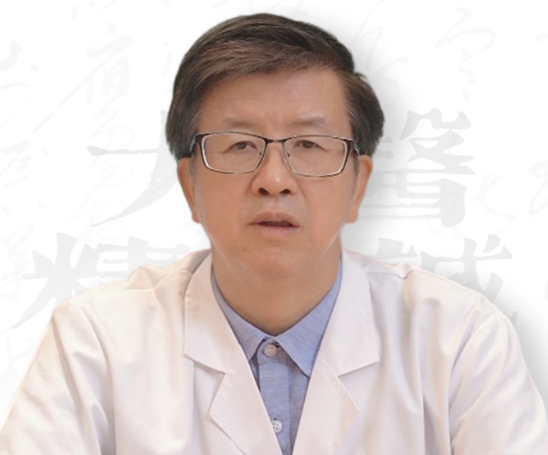 熊文生
主任医师
擅长:治疗反流性食管炎,慢性糜烂性胃炎,萎缩性胃炎,功能性消化不良,胃及十二指肠溃疡,急慢性肠炎等消化方面问题。
熊文生
主任医师
擅长:治疗反流性食管炎,慢性糜烂性胃炎,萎缩性胃炎,功能性消化不良,胃及十二指肠溃疡,急慢性肠炎等消化方面问题。
-
 刘建博
主任医师
擅长:长期致力于呼吸病的临床、科研和教学工作,特别是对慢性阻塞性肺疾病、支气管哮喘、肺肿瘤、肺间质纤维化、肺栓塞、睡眠呼吸暂停低通气等疾病的中西医结合诊治,慢性肺部疾病的康复以及管理等的有丰富经验。熟悉肺康复理论睡眠呼吸疾病理论以及实践。熟练掌握支气管镜、呼吸机、多导睡眠监测设备的操作及临床应用。对于慢性阻塞性肺疾病重视“培土生金”,重视慢性阻塞性肺疾病稳定期的管理与康复,大力提倡中医药特色疗法在慢性肺疾病康复中的应用,特别是运用具有中医特色的自血穴位注射治疗稳定期慢性肺疾病取得了较好的疗效。
刘建博
主任医师
擅长:长期致力于呼吸病的临床、科研和教学工作,特别是对慢性阻塞性肺疾病、支气管哮喘、肺肿瘤、肺间质纤维化、肺栓塞、睡眠呼吸暂停低通气等疾病的中西医结合诊治,慢性肺部疾病的康复以及管理等的有丰富经验。熟悉肺康复理论睡眠呼吸疾病理论以及实践。熟练掌握支气管镜、呼吸机、多导睡眠监测设备的操作及临床应用。对于慢性阻塞性肺疾病重视“培土生金”,重视慢性阻塞性肺疾病稳定期的管理与康复,大力提倡中医药特色疗法在慢性肺疾病康复中的应用,特别是运用具有中医特色的自血穴位注射治疗稳定期慢性肺疾病取得了较好的疗效。
-
 李宝国
副主任中医师
擅长:擅长:针法无痛微痛、推拿手法柔和细腻。
李宝国
副主任中医师
擅长:擅长:针法无痛微痛、推拿手法柔和细腻。
-
 庄昆海
副主任医师
擅长:脾胃系常见疾病(如功能性胃肠病、慢性萎缩性胃炎、消化性溃疡、胃食管反流病、胃癌前病变等)、肝胆系常见疾病(如慢性肝炎、肝硬化、不明原因黄疸等)以及重症肌无力等的诊治。
庄昆海
副主任医师
擅长:脾胃系常见疾病(如功能性胃肠病、慢性萎缩性胃炎、消化性溃疡、胃食管反流病、胃癌前病变等)、肝胆系常见疾病(如慢性肝炎、肝硬化、不明原因黄疸等)以及重症肌无力等的诊治。
-
 李盛青
主任医师
擅长:擅长治疗反流性食管炎,非萎缩性胃炎,萎缩性胃炎,慢性糜烂性胃炎,浅表性胃炎,胃及十二指肠溃疡,便秘等肠胃方面的问题。长期进行岭南特色中药的临床应用,教学和实验研究,参加国家和省部级课题多项。
李盛青
主任医师
擅长:擅长治疗反流性食管炎,非萎缩性胃炎,萎缩性胃炎,慢性糜烂性胃炎,浅表性胃炎,胃及十二指肠溃疡,便秘等肠胃方面的问题。长期进行岭南特色中药的临床应用,教学和实验研究,参加国家和省部级课题多项。
-
 陈治珍
副主任医师
擅长:擅长小儿脾胃、小儿发育、小儿咳嗽、腺样体肥大、便秘、过敏性鼻炎,调理过敏体质等儿科疾病。
陈治珍
副主任医师
擅长:擅长小儿脾胃、小儿发育、小儿咳嗽、腺样体肥大、便秘、过敏性鼻炎,调理过敏体质等儿科疾病。
-
 郑学宝
主任医师
擅长:擅长中医治疗:月经不调,内分泌失调,多囊卵巢综合征,卵巢早衰,不孕不育,乳腺、肺、甲状腺等结节、息肉、寰肿、脾胃、失眠等疑难杂症。
郑学宝
主任医师
擅长:擅长中医治疗:月经不调,内分泌失调,多囊卵巢综合征,卵巢早衰,不孕不育,乳腺、肺、甲状腺等结节、息肉、寰肿、脾胃、失眠等疑难杂症。
-
 董秀兰
副主任医师
擅长:擅长中药及针灸并用治疗各种痛症及疑难杂症。运用中医经方及针灸治疗儿童咳嗽、哮喘等肺系疾病,食积、泄泻、疳病等脾胃病,肾炎、肾综、过敏性紫癜、性早熟、生长迟缓等。
董秀兰
副主任医师
擅长:擅长中药及针灸并用治疗各种痛症及疑难杂症。运用中医经方及针灸治疗儿童咳嗽、哮喘等肺系疾病,食积、泄泻、疳病等脾胃病,肾炎、肾综、过敏性紫癜、性早熟、生长迟缓等。
-
 张军
副主任医师
擅长:中风、帕金森病、老年痴呆、肝纤维化、重症肌无力、血管神经性头痛、三叉神经痛、肋间神经痛、坐骨神经痛、面神经麻痹或痉挛、癫痫和癫痫综合症、糖尿病性神经病变、外伤性截瘫、大脑发育不全、急性脊髓炎、脑肿瘤等疑难杂症的中西医结合诊疗。
张军
副主任医师
擅长:中风、帕金森病、老年痴呆、肝纤维化、重症肌无力、血管神经性头痛、三叉神经痛、肋间神经痛、坐骨神经痛、面神经麻痹或痉挛、癫痫和癫痫综合症、糖尿病性神经病变、外伤性截瘫、大脑发育不全、急性脊髓炎、脑肿瘤等疑难杂症的中西医结合诊疗。
-
 赵晓
副主任医师
擅长:擅长颈、肩、腰、腿痛症、膝骨关节炎、各类筋伤骨伤、运动损伤的诊治。
赵晓
副主任医师
擅长:擅长颈、肩、腰、腿痛症、膝骨关节炎、各类筋伤骨伤、运动损伤的诊治。
-
 吴文锋
主任中医师
擅长:擅长:针灸、推拿等非药物疗法,对颈肩腰腿痛、中风后遗症及失眠、胃炎、咳嗽等中医杂症的治疗有独到见解。
吴文锋
主任中医师
擅长:擅长:针灸、推拿等非药物疗法,对颈肩腰腿痛、中风后遗症及失眠、胃炎、咳嗽等中医杂症的治疗有独到见解。
-
 殷新
副主任医师
擅长:善于中西医结合治疗各种皮肤病,尤其湿疹、荨麻疹、神经性皮炎、带状疱疹、癣、痤疮、瘙痒症、银屑病、红斑狼疮的中医诊治,亦擅长激光去除色素痣、疣、脂溢性角化病(老人斑)等美容疾患。对各种性病如梅毒、淋病、生殖器疱疹、支原体、衣原体、念珠菌感染等的诊治有一定的造诣。
殷新
副主任医师
擅长:善于中西医结合治疗各种皮肤病,尤其湿疹、荨麻疹、神经性皮炎、带状疱疹、癣、痤疮、瘙痒症、银屑病、红斑狼疮的中医诊治,亦擅长激光去除色素痣、疣、脂溢性角化病(老人斑)等美容疾患。对各种性病如梅毒、淋病、生殖器疱疹、支原体、衣原体、念珠菌感染等的诊治有一定的造诣。
-
 幸冰峰
副主任医师
擅长:中西医结合治疗心脑血管疾病以及脑血管意外后遗症、面瘫、脑卒中后偏瘫、吞咽功能障碍、感觉功能障碍等神经系统疾病及带状疱疹后遗神经痛、偏头痛等。
幸冰峰
副主任医师
擅长:中西医结合治疗心脑血管疾病以及脑血管意外后遗症、面瘫、脑卒中后偏瘫、吞咽功能障碍、感觉功能障碍等神经系统疾病及带状疱疹后遗神经痛、偏头痛等。
-
 洪敏
主任医师
擅长:经方结合五运六气理论诊治内、妇、儿、皮肤科等常见病及疑难杂病,尤其擅用六经辨证结合运气理论,纯中药施治哮喘、慢性阻塞性肺疾病、支气管炎、支气管扩张、过敏性肺炎、反复感冒、肺炎、上呼吸道感染、间质性肺疾病、亚健康等常见病及疑难杂病,疗效显著。
洪敏
主任医师
擅长:经方结合五运六气理论诊治内、妇、儿、皮肤科等常见病及疑难杂病,尤其擅用六经辨证结合运气理论,纯中药施治哮喘、慢性阻塞性肺疾病、支气管炎、支气管扩张、过敏性肺炎、反复感冒、肺炎、上呼吸道感染、间质性肺疾病、亚健康等常见病及疑难杂病,疗效显著。
-
 高洁
主任医师
擅长:失眠、焦虑、抑郁、睡眠障碍、脾胃失和、神经衰弱、更年期综合征等问题。
高洁
主任医师
擅长:失眠、焦虑、抑郁、睡眠障碍、脾胃失和、神经衰弱、更年期综合征等问题。
-
 刘展华
副主任医师
擅长:肺癌、大肠癌、乳腺癌和卵巢癌等妇科肿瘤的中西医结合治疗。
刘展华
副主任医师
擅长:肺癌、大肠癌、乳腺癌和卵巢癌等妇科肿瘤的中西医结合治疗。
-
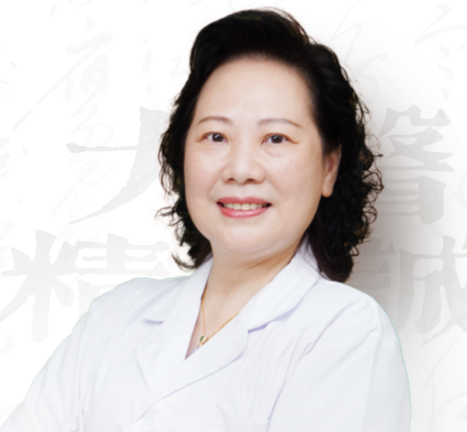 梁幼雅
主任医师
擅长:(1)中西医结合对胃肠疾病的诊治与调理,尤其对胃溃疡、十二指肠球部溃疡的中西药结合治疗及其有效防止复发的临床研究 (2)女性内分泌失调的中医治疗与调理。曾成功治疗了多例卵巢多囊患者的不孕症。失眠、更年期综合征、亚健康综合征、感冒、咳嗽等。
梁幼雅
主任医师
擅长:(1)中西医结合对胃肠疾病的诊治与调理,尤其对胃溃疡、十二指肠球部溃疡的中西药结合治疗及其有效防止复发的临床研究 (2)女性内分泌失调的中医治疗与调理。曾成功治疗了多例卵巢多囊患者的不孕症。失眠、更年期综合征、亚健康综合征、感冒、咳嗽等。
-
 全世建
主任医师
擅长:治疗糖尿病及并发症(糖尿病肾病、糖尿病神经病变、糖尿病胃肠病)、甲状腺疾病(甲亢、甲减、甲状腺结节、桥本氏病)及高血脂、痛风、失眠等内分泌代谢疾病。
全世建
主任医师
擅长:治疗糖尿病及并发症(糖尿病肾病、糖尿病神经病变、糖尿病胃肠病)、甲状腺疾病(甲亢、甲减、甲状腺结节、桥本氏病)及高血脂、痛风、失眠等内分泌代谢疾病。
-
 林穗芳
主任中医师
擅长:擅长:消化脾胃病诊治,亚健康调治,体虚调养,病后调养等
林穗芳
主任中医师
擅长:擅长:消化脾胃病诊治,亚健康调治,体虚调养,病后调养等
-
 李恩庆
主任医师
擅长:擅长运用中医经典方治疗儿科常见病和疑难病.如小儿慢性咳嗽、小儿发热性疾病、鼻炎、支气管炎、支气管哮喘、病毒性心肌炎、心律失常、复发性口腔炎、小儿厌食、消化不良、腹痛、腹泻、便秘、肾炎水肿、儿童遗尿、青春期痛经、小儿湿疹、青春期痤疮、荨麻疹、过敏性紫癜.
李恩庆
主任医师
擅长:擅长运用中医经典方治疗儿科常见病和疑难病.如小儿慢性咳嗽、小儿发热性疾病、鼻炎、支气管炎、支气管哮喘、病毒性心肌炎、心律失常、复发性口腔炎、小儿厌食、消化不良、腹痛、腹泻、便秘、肾炎水肿、儿童遗尿、青春期痛经、小儿湿疹、青春期痤疮、荨麻疹、过敏性紫癜.
-
 徐志坚
副主任医师
擅长:冠脉疾病、高脂血症、高血压病、脑神经病、神经系统发育异常、脑血管病、神经系统感染、运动障碍性疾病、神经系统变性疾病、睡眠障碍、冠心病、心绞痛、高甘油三酯血症、高胆固醇血症、混合性高脂血症、原发性高血压、继发性高血压、脑梗死、失眠症等。
徐志坚
副主任医师
擅长:冠脉疾病、高脂血症、高血压病、脑神经病、神经系统发育异常、脑血管病、神经系统感染、运动障碍性疾病、神经系统变性疾病、睡眠障碍、冠心病、心绞痛、高甘油三酯血症、高胆固醇血症、混合性高脂血症、原发性高血压、继发性高血压、脑梗死、失眠症等。
-
 周凤华
副主任医师
擅长:擅长脾胃病、外感疾病、代谢病及失眠、情绪问题的中西医防治,包括感冒、咳嗽、胃肠病、高脂血症及中医虚证等
周凤华
副主任医师
擅长:擅长脾胃病、外感疾病、代谢病及失眠、情绪问题的中西医防治,包括感冒、咳嗽、胃肠病、高脂血症及中医虚证等
-
 叶穗林
主任中医师
擅长:擅长应用中医理论指导、运用中医方法治疗冠心病、高血压病、心肌病、病毒性心肌炎、风湿性心脏病、顽固性心力衰竭、顽固性心律失常等疾病。
叶穗林
主任中医师
擅长:擅长应用中医理论指导、运用中医方法治疗冠心病、高血压病、心肌病、病毒性心肌炎、风湿性心脏病、顽固性心力衰竭、顽固性心律失常等疾病。
-
 黄飞麒
副主任医师
擅长:运用针灸、整脊疗法、正骨等中医特色治疗方法治疗颈椎病、关节炎、腰椎间盘突出症等骨伤科疾病。
黄飞麒
副主任医师
擅长:运用针灸、整脊疗法、正骨等中医特色治疗方法治疗颈椎病、关节炎、腰椎间盘突出症等骨伤科疾病。
-
 范琳燕
副主任中医师
擅长:运用中西医手段对失眠、多囊卵巢综合征、卵巢早衰、乳腺增生、肥胖症。
范琳燕
副主任中医师
擅长:运用中西医手段对失眠、多囊卵巢综合征、卵巢早衰、乳腺增生、肥胖症。
-
 刘凤斌
主任医师、教授(博导)
擅长:慢性萎缩性胃炎、功能性胃肠病、炎症性肠病、胃食管反流病、慢性肝病、肝硬化、顽固性腹水、重症肌无力的诊治和研究。
刘凤斌
主任医师、教授(博导)
擅长:慢性萎缩性胃炎、功能性胃肠病、炎症性肠病、胃食管反流病、慢性肝病、肝硬化、顽固性腹水、重症肌无力的诊治和研究。
-
 吴智兵
主任中医师
擅长:主治中风、帕金森病、多发性硬化、头痛及神经痛、头晕、脑脊髓炎、癫痫、睡眠障碍及外感热性病等。
吴智兵
主任中医师
擅长:主治中风、帕金森病、多发性硬化、头痛及神经痛、头晕、脑脊髓炎、癫痫、睡眠障碍及外感热性病等。
-
 许双虹
主任医师
擅长:擅长小儿脾胃病:积滞、厌食、便秘、腹泻、腹痛、汗病、体弱易感冒、睡眠障碍等
许双虹
主任医师
擅长:擅长小儿脾胃病:积滞、厌食、便秘、腹泻、腹痛、汗病、体弱易感冒、睡眠障碍等
-
 谈博
主任医师
擅长:常见内科疾病的中西医结合诊治和中医体质调理,尤其是病毒性肝炎、脂肪肝、肝硬化、肝癌、失眠、代谢综合征、肠易激综合征、慢性疲劳综合征、各种偏颇体质。
谈博
主任医师
擅长:常见内科疾病的中西医结合诊治和中医体质调理,尤其是病毒性肝炎、脂肪肝、肝硬化、肝癌、失眠、代谢综合征、肠易激综合征、慢性疲劳综合征、各种偏颇体质。
-
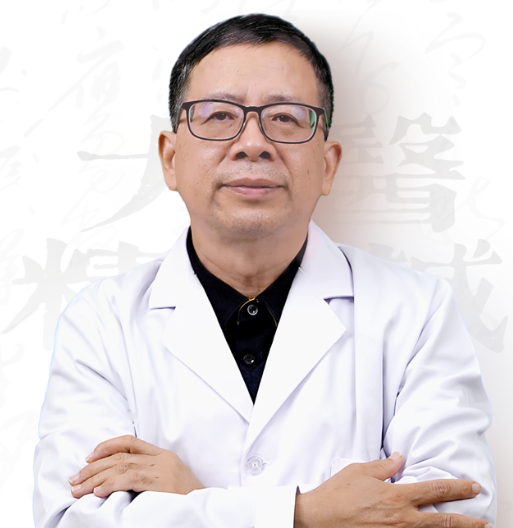 李常青
主任医师
擅长:治疗反流性食管炎、萎缩性胃炎、糜烂性胃炎、慢性浅表性胃炎、胃溃疡、十二指肠溃疡、胃癌癌前病变等.
李常青
主任医师
擅长:治疗反流性食管炎、萎缩性胃炎、糜烂性胃炎、慢性浅表性胃炎、胃溃疡、十二指肠溃疡、胃癌癌前病变等.
-
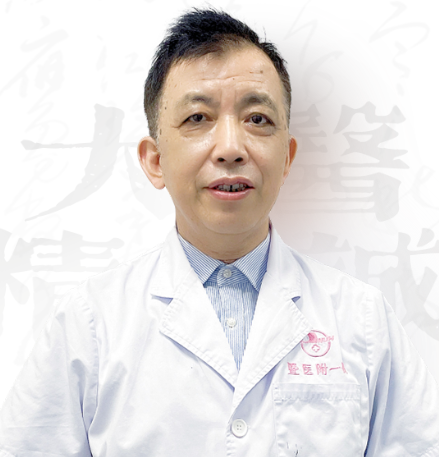 赵国平
主任医师
擅长:中西医结合治疗失眠症、睡眠障碍、更年期综合征、眩晕症焦虑症等疾病。
赵国平
主任医师
擅长:中西医结合治疗失眠症、睡眠障碍、更年期综合征、眩晕症焦虑症等疾病。
-
 方志辉
副主任医师
擅长:擅长中西医结合治疗糖尿病足、糖尿病及其他并发症;甲亢、甲减、亚急性甲状腺炎、甲状腺结节等甲状腺疾病;中医治疗疑难杂症。
方志辉
副主任医师
擅长:擅长中西医结合治疗糖尿病足、糖尿病及其他并发症;甲亢、甲减、亚急性甲状腺炎、甲状腺结节等甲状腺疾病;中医治疗疑难杂症。
-
 林晓洁
中医主任医师
擅长:小儿生长障碍和脾胃问题:矮小症,身高体重不达标,发育迟缓,性早熟,睡眠障碍,肺系疾病:咳嗽,鼻炎,腺样体肥大,哮喘,过敏体质,荨麻疹,湿疹等皮肤问题,消化不良、便秘、积食、泄泻、疳病等脾胃病.
林晓洁
中医主任医师
擅长:小儿生长障碍和脾胃问题:矮小症,身高体重不达标,发育迟缓,性早熟,睡眠障碍,肺系疾病:咳嗽,鼻炎,腺样体肥大,哮喘,过敏体质,荨麻疹,湿疹等皮肤问题,消化不良、便秘、积食、泄泻、疳病等脾胃病.
-
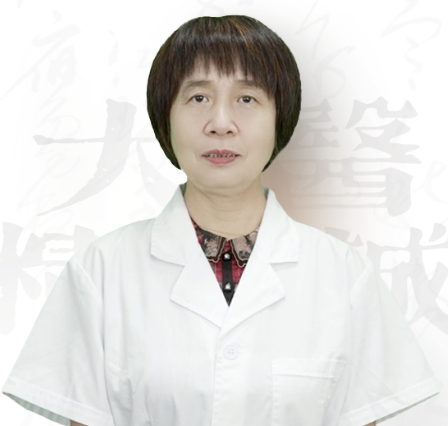 古继红
主任医师
擅长:胃痛,胃胀,反酸烧心,萎缩性胃炎,糜烂性胃炎,反流性食管炎,胃溃疡,炎症性肠病,口臭,打嗝,嗳气等脾胃疾病.
古继红
主任医师
擅长:胃痛,胃胀,反酸烧心,萎缩性胃炎,糜烂性胃炎,反流性食管炎,胃溃疡,炎症性肠病,口臭,打嗝,嗳气等脾胃疾病.
-
 殷新
副主任医师
擅长:善于中西医结合治疗各种皮肤病,尤其湿疹、荨麻疹、神经性皮炎、带状疱疹、癣、痤疮、瘙痒症、银屑病、红斑狼疮的中医诊治,亦擅长激光去除色素痣、疣、脂溢性角化病(老人斑)等美容疾患。对各种性病如梅毒、淋病、生殖器疱疹、支原体、衣原体、念珠菌感染等的诊治有一定的造诣。
殷新
副主任医师
擅长:善于中西医结合治疗各种皮肤病,尤其湿疹、荨麻疹、神经性皮炎、带状疱疹、癣、痤疮、瘙痒症、银屑病、红斑狼疮的中医诊治,亦擅长激光去除色素痣、疣、脂溢性角化病(老人斑)等美容疾患。对各种性病如梅毒、淋病、生殖器疱疹、支原体、衣原体、念珠菌感染等的诊治有一定的造诣。
-
 施旭光
主任医师
擅长:反流性食管炎,慢性糜烂性胃炎,萎缩性胃炎,胃及十二指肠溃疡病等消化方面的问题。
施旭光
主任医师
擅长:反流性食管炎,慢性糜烂性胃炎,萎缩性胃炎,胃及十二指肠溃疡病等消化方面的问题。
-
 施旭光
主任医师
擅长:反流性食管炎,慢性糜烂性胃炎,萎缩性胃炎,胃及十二指肠溃疡病等消化方面的问题。
施旭光
主任医师
擅长:反流性食管炎,慢性糜烂性胃炎,萎缩性胃炎,胃及十二指肠溃疡病等消化方面的问题。
-
 韩宇霞
副主任医师
擅长:治疗妇科炎症、更年期综合征、月经失调、妇科杂病。
韩宇霞
副主任医师
擅长:治疗妇科炎症、更年期综合征、月经失调、妇科杂病。
-
 卢如玲
主任医师
擅长:治疗不孕症、子宫内膜异位症、妇科良性肿瘤的微创手术治疗、月经不调等妇科疾病。
卢如玲
主任医师
擅长:治疗不孕症、子宫内膜异位症、妇科良性肿瘤的微创手术治疗、月经不调等妇科疾病。
-
 吴薏婷
主任医师
擅长:擅长: 擅长中西医结合治疗肺癌、乳腺癌、鼻咽癌、前列腺癌、甲状腺癌、肠癌、胃癌、胰腺癌、肝癌、卵巢癌等恶性肿瘤;乳腺囊肿、乳腺纤维瘤、子宫肌瘤、甲状腺结节、大肠息肉、脂肪瘤等良性肿瘤。同时擅长用经方治疗感冒、咳嗽、胃痛、腹泻等内科疾病以及颈椎病、腰椎病的内科保守治疗。
吴薏婷
主任医师
擅长:擅长: 擅长中西医结合治疗肺癌、乳腺癌、鼻咽癌、前列腺癌、甲状腺癌、肠癌、胃癌、胰腺癌、肝癌、卵巢癌等恶性肿瘤;乳腺囊肿、乳腺纤维瘤、子宫肌瘤、甲状腺结节、大肠息肉、脂肪瘤等良性肿瘤。同时擅长用经方治疗感冒、咳嗽、胃痛、腹泻等内科疾病以及颈椎病、腰椎病的内科保守治疗。
-
 周杰
主任中医师
擅长:中医中药治疗皮肤疾病,湿疹、荨麻疹、脂溢性皮炎、带状疱疹、银屑病等皮肤问题。擅长针药并治各类疑难杂症,擅长内科疾病:如内分泌疾病、心脑血管疾病、脾胃疾病等等。运用中医整脊和意大利米兰整骨、中医药、针灸等疗法治疗多种急慢性软组织损伤性疾病及脊柱相关疾病,在颈椎病、肩周炎、颈腰椎间盘突出症、急慢性损伤所致腰腿痛、骨质疏松症及老年病等方面疗效显著,尤其在治疗椎管狭窄、腰椎滑脱症、脊椎手术后遗症、青少年脊柱侧弯症等脊柱劳伤疑难病亦有较好的疗效,积累了丰富的临床经验,在脑外伤及中风后遗症治疗康复上也有独到的心得。
周杰
主任中医师
擅长:中医中药治疗皮肤疾病,湿疹、荨麻疹、脂溢性皮炎、带状疱疹、银屑病等皮肤问题。擅长针药并治各类疑难杂症,擅长内科疾病:如内分泌疾病、心脑血管疾病、脾胃疾病等等。运用中医整脊和意大利米兰整骨、中医药、针灸等疗法治疗多种急慢性软组织损伤性疾病及脊柱相关疾病,在颈椎病、肩周炎、颈腰椎间盘突出症、急慢性损伤所致腰腿痛、骨质疏松症及老年病等方面疗效显著,尤其在治疗椎管狭窄、腰椎滑脱症、脊椎手术后遗症、青少年脊柱侧弯症等脊柱劳伤疑难病亦有较好的疗效,积累了丰富的临床经验,在脑外伤及中风后遗症治疗康复上也有独到的心得。
-
 吴庆光
主任中医师
擅长:擅长应用中药治疗失眠、胃肠病、咳嗽、咽喉肿痛等中医内科常见病症。
吴庆光
主任中医师
擅长:擅长应用中药治疗失眠、胃肠病、咳嗽、咽喉肿痛等中医内科常见病症。
-
 许丽绵
主任医师
擅长:不孕、流产、炎症、月经病
许丽绵
主任医师
擅长:不孕、流产、炎症、月经病
-
 张伦
主任中医师
擅长:擅长:擅长中西医结合消化内科。以中西医诊治胃肠功能性疾病,如功能性消化不良、肠易激综合征等为主攻方向。
张伦
主任中医师
擅长:擅长:擅长中西医结合消化内科。以中西医诊治胃肠功能性疾病,如功能性消化不良、肠易激综合征等为主攻方向。
-
 刘文杰
副主任医师
擅长:刘文杰 善于采用中医的方法对儿童皮肤科常见病、多发病进行诊治。特别对湿疹( 特应性皮炎)、尊麻疹、座疮、银屑病、红斑狼疮、硬皮病脱发及各种性病的治疗积累了较丰富的临床经验。
刘文杰
副主任医师
擅长:刘文杰 善于采用中医的方法对儿童皮肤科常见病、多发病进行诊治。特别对湿疹( 特应性皮炎)、尊麻疹、座疮、银屑病、红斑狼疮、硬皮病脱发及各种性病的治疗积累了较丰富的临床经验。
-
 袁立霞
副主任医师
擅长:擅长内科疑难杂证、胃肠病、风湿病等中医药治疗。
袁立霞
副主任医师
擅长:擅长内科疑难杂证、胃肠病、风湿病等中医药治疗。
-
 戈焰
主任中医师
擅长:擅长难治性胃炎、萎缩性胃炎伴肠上皮化生、不典型增生,上消化道出血、功能性肠病、乙型肝炎、肝硬化。
戈焰
主任中医师
擅长:擅长难治性胃炎、萎缩性胃炎伴肠上皮化生、不典型增生,上消化道出血、功能性肠病、乙型肝炎、肝硬化。
-
 苏慧
副主任中医师
擅长:擅长:在治疗眩晕,头痛,胸闷、气喘、心悸、失眠、高血压病,高脂血症,心肌病、心力衰竭、心律失常等疾病方面有深入研究。
苏慧
副主任中医师
擅长:擅长:在治疗眩晕,头痛,胸闷、气喘、心悸、失眠、高血压病,高脂血症,心肌病、心力衰竭、心律失常等疾病方面有深入研究。
-
 宋阳
主任医师
擅长:擅长: 月经不调/不孕不育/痛经/多囊卵巢综合征/子宫肌瘤/自然流产及各种妇科手术后调理等妇科常见疾病。
宋阳
主任医师
擅长:擅长: 月经不调/不孕不育/痛经/多囊卵巢综合征/子宫肌瘤/自然流产及各种妇科手术后调理等妇科常见疾病。
-
 黎同明
主任医师
擅长:肺结节,慢阻肺,支气管哮喘,鼻炎、咽炎、急慢性支气管炎、哮喘、肺炎、肺气肿、顽固性咳嗽、胃痛等内科常见病、多发病,同时擅长于内分泌调理,亚健康状况调理等。
黎同明
主任医师
擅长:肺结节,慢阻肺,支气管哮喘,鼻炎、咽炎、急慢性支气管炎、哮喘、肺炎、肺气肿、顽固性咳嗽、胃痛等内科常见病、多发病,同时擅长于内分泌调理,亚健康状况调理等。
-
 吴江平
主任医师
擅长:擅长中西医结合调理阳痿、早泄等男科疾病
吴江平
主任医师
擅长:擅长中西医结合调理阳痿、早泄等男科疾病
-
 黄平东
主任中医师
擅长:运用中医药防治高血压、高血脂、冠心病等常见心脑血管疾病,同时也精通诊治失眠、焦虑、抑郁等内科常见疾病及疑难杂症。
黄平东
主任中医师
擅长:运用中医药防治高血压、高血脂、冠心病等常见心脑血管疾病,同时也精通诊治失眠、焦虑、抑郁等内科常见疾病及疑难杂症。
-
 邬晓东
国家二级主任医师
擅长:擅长肝癌、肺癌、食道癌、乳腺癌、鼻咽癌、子宫癌等各种肿瘤的中医及中西医结合治疗。
邬晓东
国家二级主任医师
擅长:擅长肝癌、肺癌、食道癌、乳腺癌、鼻咽癌、子宫癌等各种肿瘤的中医及中西医结合治疗。
-
 秦佳佳
副主任医师
擅长:多囊卵巢综合症、子宫内膜异位症、月经病、阴道炎、盆腔炎、不孕等妇科疑难杂症
秦佳佳
副主任医师
擅长:多囊卵巢综合症、子宫内膜异位症、月经病、阴道炎、盆腔炎、不孕等妇科疑难杂症
-
 张玉蓉
主任医师
擅长:擅长: 中西医治疗不孕症/月经病/多囊卵巢综合征/子宫内膜异位症/子宫内膜息肉等妇科杂症;
张玉蓉
主任医师
擅长:擅长: 中西医治疗不孕症/月经病/多囊卵巢综合征/子宫内膜异位症/子宫内膜息肉等妇科杂症;
-
 廖永州
副主任医师
擅长:擅长:小儿厌食,消化不良,小儿泄泻等。
廖永州
副主任医师
擅长:擅长:小儿厌食,消化不良,小儿泄泻等。
-
 钟亮环
副主任医师
擅长:擅长治疗:肺结节、慢阻肺、哮喘、支气管炎等呼吸疾病。
钟亮环
副主任医师
擅长:擅长治疗:肺结节、慢阻肺、哮喘、支气管炎等呼吸疾病。
-
 何伟强
副主任医师
擅长:中西医结合治疗过敏性皮肤病、脱发、痤疮、白癜风、黄褐斑、性病、前列腺炎等疾病。对类固醇依赖性皮炎、顽固性湿疣、复发性生殖器疱疹、慢性盆腔炎、月经不调、男女不育及性功能障碍较有经验。
何伟强
副主任医师
擅长:中西医结合治疗过敏性皮肤病、脱发、痤疮、白癜风、黄褐斑、性病、前列腺炎等疾病。对类固醇依赖性皮炎、顽固性湿疣、复发性生殖器疱疹、慢性盆腔炎、月经不调、男女不育及性功能障碍较有经验。
-
 黄燕
省名中医
擅长:中西医结合诊治神经内科及其他内科疾病,如中风(脑梗塞、脑出血等)、眩晕、头痛、痴呆、癫痫、颤证、失眠、郁证等。
黄燕
省名中医
擅长:中西医结合诊治神经内科及其他内科疾病,如中风(脑梗塞、脑出血等)、眩晕、头痛、痴呆、癫痫、颤证、失眠、郁证等。
-
 贾钰华
主任医师
擅长:擅长心脑血管疾病、老年病的中医药治疗,包括冠心病、高血压、高脂血症、心律失常、糖尿病、失眠、咳嗽、胃肠疾病等,对肿瘤放化疗后的中医药调治也颇有专长。
贾钰华
主任医师
擅长:擅长心脑血管疾病、老年病的中医药治疗,包括冠心病、高血压、高脂血症、心律失常、糖尿病、失眠、咳嗽、胃肠疾病等,对肿瘤放化疗后的中医药调治也颇有专长。
-
 刘四军
主任医师
擅长:失眠、抑郁、焦虑症、胃肠疾病等内科杂症。
刘四军
主任医师
擅长:失眠、抑郁、焦虑症、胃肠疾病等内科杂症。
-
 林一峰
主任医师
擅长:擅长运用中医药治疗:颈椎病、腰椎间盘突出症、腰椎椎管狭窄症、强直性脊椎炎、腰椎不稳等颈肩腰腿疾病 ✨不手术,纯中药温养督脉法治疗顽固性颈肩腰腿痛技术发明人
林一峰
主任医师
擅长:擅长运用中医药治疗:颈椎病、腰椎间盘突出症、腰椎椎管狭窄症、强直性脊椎炎、腰椎不稳等颈肩腰腿疾病 ✨不手术,纯中药温养督脉法治疗顽固性颈肩腰腿痛技术发明人
-
 黄清春
主任医师
擅长:中西医结合治疗强直性脊柱炎、类风湿关节炎、痛风、系统性红斑狼疮、幼年特发性关节炎、皮肌炎、干燥综合征、腰椎间盘突出症等风湿病。
黄清春
主任医师
擅长:中西医结合治疗强直性脊柱炎、类风湿关节炎、痛风、系统性红斑狼疮、幼年特发性关节炎、皮肌炎、干燥综合征、腰椎间盘突出症等风湿病。
-
 张双伟
主任中医师,博士后合作导师,博士研究生导师
擅长:专长:中西医结合治疗各种心脑血管疾病如冠心病、心力衰竭、心律失常、高血压、中风、眩晕、失眠等;呼吸系统疾病如急慢性咳嗽、咽炎、支气管炎、肺炎等;消化系统疾病如胃痛、腹胀、便秘、腹泻等;妇科疾病如月经不调、乳腺疾患、带下病等,以及各种亚健康调理。同时擅长运用中医特色治疗方法如腹针等改善临床症状。
张双伟
主任中医师,博士后合作导师,博士研究生导师
擅长:专长:中西医结合治疗各种心脑血管疾病如冠心病、心力衰竭、心律失常、高血压、中风、眩晕、失眠等;呼吸系统疾病如急慢性咳嗽、咽炎、支气管炎、肺炎等;消化系统疾病如胃痛、腹胀、便秘、腹泻等;妇科疾病如月经不调、乳腺疾患、带下病等,以及各种亚健康调理。同时擅长运用中医特色治疗方法如腹针等改善临床症状。
-
 曹勇
主任医师
擅长:擅于肺结节,甲状腺结节,乳腺结节,肺癌、胃癌、乳腺癌等恶性肿瘤的康复诊治及术后防复发调理。
曹勇
主任医师
擅长:擅于肺结节,甲状腺结节,乳腺结节,肺癌、胃癌、乳腺癌等恶性肿瘤的康复诊治及术后防复发调理。
-
 杨小红
主任中医师
擅长:糖尿病,甲亢,骨质疏松症,肾病综合症,慢性肾衰竭等疾病。
杨小红
主任中医师
擅长:糖尿病,甲亢,骨质疏松症,肾病综合症,慢性肾衰竭等疾病。
-
 黄燕
主任医师
擅长:中西医结合诊治神经内科及其他内科疾病,如中风(脑梗塞、脑出血等)、眩晕、头痛、痴呆、癫痫、颤证、失眠、郁证等。
黄燕
主任医师
擅长:中西医结合诊治神经内科及其他内科疾病,如中风(脑梗塞、脑出血等)、眩晕、头痛、痴呆、癫痫、颤证、失眠、郁证等。
